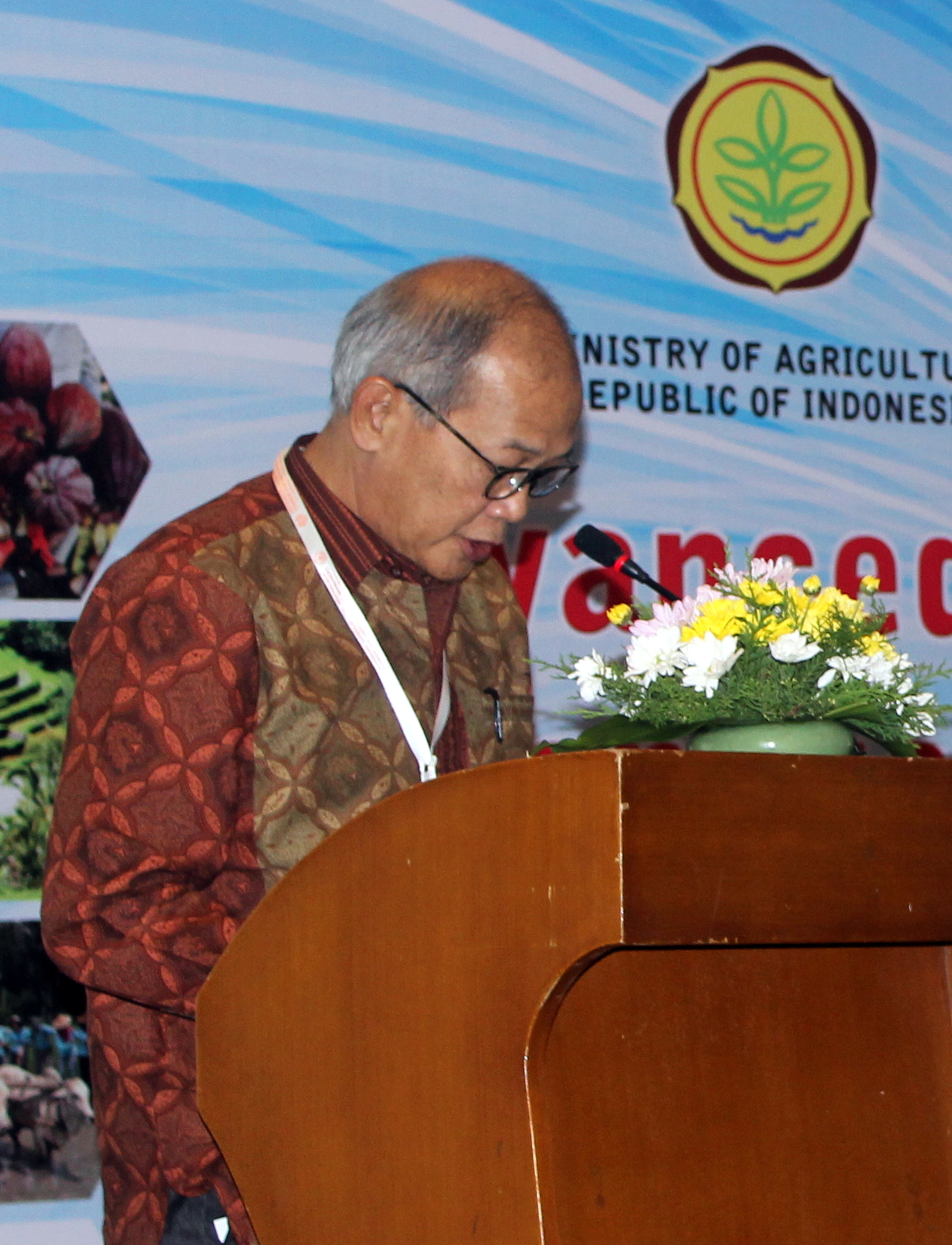
Select Page
The Asian Productivity Organization (APO) along with the Dyson School of Applied Economics and Management of Cornell University is conducting an Advanced Agribusiness Management Course for executives and managers in Bali, Indonesia, 27 February–3 March 2017.
The five-day Cornell–APO collaborative program is being implemented in partnership with the Bureau for International Cooperation of the Ministry of Agriculture and the National Productivity Organization (NPO), Directorate General of Training and Productivity, Ministry of Manpower, Indonesia.

Secretary-General of the Indonesian Ministry of Agriculture Hari Priyono delivering the keynote address.
Delivering the keynote address, Secretary-General Hari Priyono of the Indonesian Ministry of Agriculture said that today’s agribusinesses operate in a rapidly changing, volatile, technology-driven, consumer-focused market. “This dynamic environment poses greater challenges to executives and managers of agribusiness companies in staying competitive. They have to explore new products, business models, and even organizational structures that could increase their efficiency and overall productivity to strengthen their market position,” he pointed out.
Secretary-General Priyono hoped that the workshop would provide a comprehensive understanding of recent and emerging developments in global and regional agribusinesses and best practices in the management of issues they faced with the focus on food security, sustainability, and competitiveness, while emphasizing startups and early-growth SMEs.
In welcoming participants, APO Secretariat Agriculture Department Director Dr. Muhammad Saeed noted that technologies were rapidly bypassing the human role in contributing to productivity, and it was imperetive for the APO to promote the concept of sustainable productivity in different sectors, including agriculture.
Dr. Saeed also commented that opportunities in agribusiness had expanded substantially due to the globalization of trade, rising incomes in the Asia-Pacific region, and increasing population. These developments had led to increasing interest in the sector and were opening up various opportunities as well as numerous challenges.
During the opening session, Indonesian NPO Head Estiarty Haryani observed that, as in her country, other APO member countries might also be struggling to anticipate future changes, especially in the quantity and quality of the demand for agricultural products, due to population growth and changes in consumption patterns.
“We are also forced to be able to anticipate other challenges, such as aging of the farming population, migration of the young labor force to urban areas, and decimation of agricultural land due to conversion to residential, industrial, and other nonagricultural uses,” she said. Haryani believed that the course developed in collaboration with Cornell University was very relevant and would help participants deal effectively with some of those challenges.
The program is being conducted by four overseas resource persons: Director of the Cornell International Institute for Food, Agriculture and Development and Professor of Applied Economics and Management Dr. Ralph D. Christy; Managing Director of K-Farm Seng Kit Chan; Daejeon University Lecturer Jieun Kim; and Senior Researcher, Department of Sustainable Economic and Social Development, Dr. Aimée Hampel-Milagrosa, Deutsches Institut für Entwicklungspolitik/German Development Institute.
The resource persons from Indonesia include Dr. H. Musa Hubeis of Bogor Agricultural University and Chairman of the Indonesian Food and Beverage Industry Association Adhi Lukman.
Overall, the training course focuses on food security, sustainability, and competitiveness for startups and early-growth SMEs and is being attended by 25 participants from 13 APO member economies. Local observers with from food and agribusiness companies, government, and academia are also attending. The program structure includes thematic lectures by experts; presentations of country case studies on food and agribusiness SMEs by participants; panel discussion; and group breakout sessions on SWOT analysis of the Cau Chocolate Factory. Field visit hosts are Kopl-Kupu Bola Dunia (a coffee plant), Cau Chocolate Factory in Cau village, and the UNESCO World Heritage Site Jatilluwih Rice Terrace Bali.